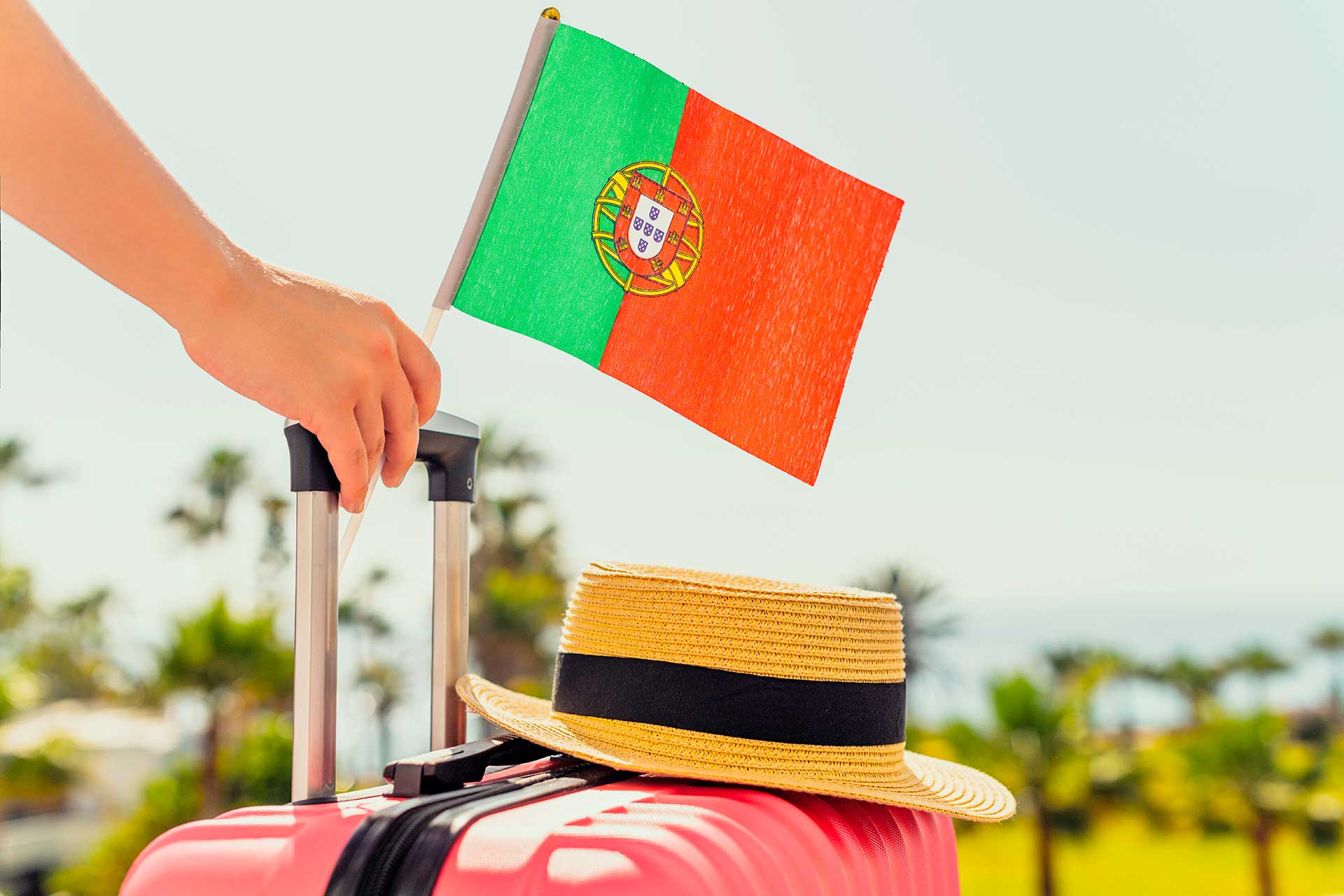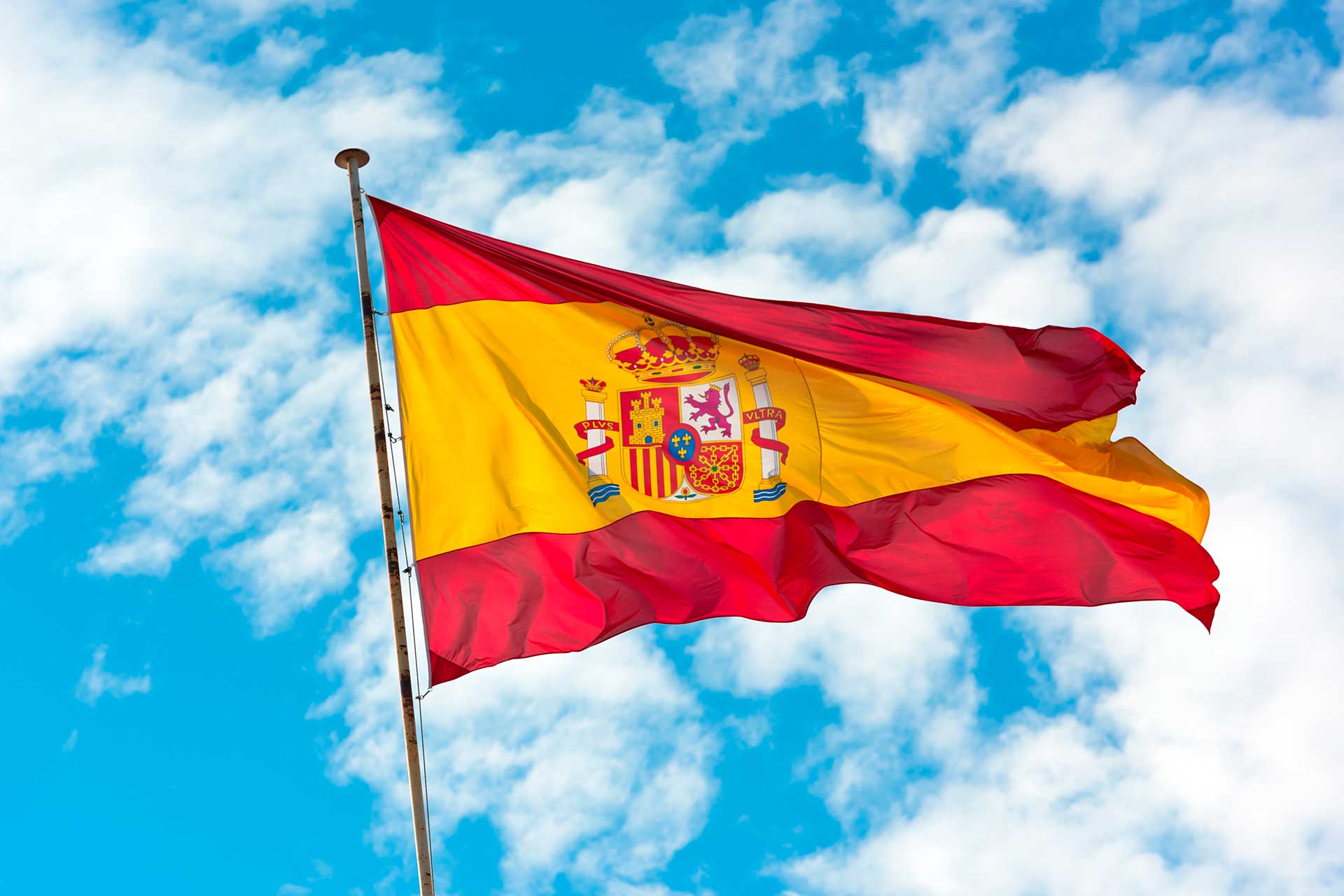December 23, 2024
The concept of digital nomadism began to actively gain popularity during the pandemic, when representatives of the IT sphere were forced to overwhelmingly switch to remote work. The new approach to work organization provides the opportunity to perform professional tasks from anywhere in the world, allowing to find a balance between career, personal life and travel. Every year, the number of states offering Digital Nomad Visas (DNV) is increasing as more and more people prefer mobility.
The Digital Nomad Visa is designed primarily for entrepreneurs, bloggers, IT professionals, freelancers, and other professionals who work remotely. Each country has its own requirements for digital visa applicants, the main one being a minimum income. Today, more than 50 countries, including those outside Europe, issue residence permits to remote workers. Next, let’s consider who and how can take advantage of this program, as well as whether there are alternative immigration options.
What is a digital nomad visa?
Digital Nomad Visa is a residence permit or long-term visa (depending on the legislation) that allows foreigners to live in the country and work remotely. In some states, such as Spain, the applicant may be employed by a local company if such employment does not exceed 20% of their professional freelance work. The main requirement for obtaining a DNV is proof of employment or registration as a self-employed person outside the country where the residence permit is issued.
This visa is aimed at attracting remote foreign workers who will contribute to the development of innovative industries while making high tax payments. In addition to tourism development, during the ongoing pandemic another goal of the Digital Nomad Visa is to prevent brain drain – after moving to another country, highly skilled professionals, as a rule, remain tax residents of their state, and continue to bring it profit.
Benefits of a digital nomad visa
A digital nomad visa allows remote workers to choose the most comfortable place on the planet to live. Tropical islands (Costa Rica, Mauritius, Barbados and others), European countries with moderate climate (Iceland, Estonia, Germany) – the list of possible options is expanding every year. Other advantages of this residence permit include:
- a minimal number of requirements that applicants must meet, unlike, for example, immigration through employment;
- simple application process (in some cases it can be done entirely online);
- minimal visa fees;
- tax benefits, and in some cases, complete exemption from contributions to the state budget for a certain period;
- opportunity to move to a new place together with close relatives within the framework of the family reunification program;
- access to education, banking and medical services of the state.
In a number of countries, you are given the opportunity to obtain permanent resident status and citizenship after living on their territory for a set period of time with a digital nomad visa. It is worth considering that this practice is not common in all states, so the best immigration option may be to obtain an EU passport under a simplified program. With the help of Globalcitizenpass lawyers, you will obtain European citizenship in a short period of time to live and work in any country of the association without any restrictions and additional permits.
Who can apply for a digital nomad visa?
The conditions for applying for a digital nomad visa vary from country to country depending on the national legislation. This type of residence permit is intended for remote workers who are not competitors in the local labor market. DNV is available for the following categories of professionals:
- employees of foreign companies (remote workers) who can perform work entirely online (accountants, consultants, marketers, sales managers and others);
- freelancers engaged in independent professional activities (e.g., illustrators, artists, software developers);
- business owners, entrepreneurs who manage their project entirely remotely;
- Investors who have invested outside the country and live on dividends.
Any category of foreigners from outside the EU may apply for the Digital Nomad Visa, provided that the conditions of immigration law and the possibility to carry out professional activities online are met. Digital nomad visa can be obtained if the standard requirements are met:
- remote employment outside the country of visa application or registration as a self-employed person abroad;
- proof of professional qualifications or experience in a particular field (usually at least 3-5 years).
- attainment of the age of majority;
- issuance of a health insurance policy;
- proof of a stable and legal monthly income (the amount varies from state to state);
- proof of sufficient funds to cover expenses for the duration of the visa.
Some requirements depend on your nationality – in particular for EU passport holders within the association there are none at all. European citizenship can be obtained under a simplified program in the shortest possible time. With the help of Globalcitizenpass lawyers, you can quickly obtain an EU passport and enjoy all its benefits, including living in any EU country as a remote worker.

The process of obtaining a digital nomad visa
Depending on the immigration laws digital nomad visa can be a residence permit or a visa. The process of applying for the document is done online before arriving in the country or already upon arrival on the basis of a D visa. Let’s take a look at the key steps in obtaining a DNW:
- Gathering the dossier and filling out the application.
Documents must be translated into the official language of the country where immigration is planned, legalized, if required. As a rule, the application can be filled out and sent online, paying the established administrative fee (for example, in Croatia – from 46 EUR). The cost of visa processing varies from country to country – for example, in Antigua and Barbuda you will have to pay from 1422 EUR per applicant, in Estonia – only 100 EUR. Some countries require personal presence at their consulate to submit a visa application form. - Getting pre-approval.
The application processing time varies from country to country, averaging 30 working days. For example, in Spain the standard decision-making period is 10 days, but it can be increased if the authorized body requests additional documents or invites the candidate for an interview. - Rent or purchase of housing, insurance.
To obtain a residence permit, a foreigner needs to register his/her address, thus confirming that he/she has a place to live in the country of immigration. The applicant will also need to issue a health insurance for him/herself and family members if they are moving with him/her. - Issuance of a National visa.
Generally, foreigners must apply for an entry permit to enter the country. The make a request for a D visa is submitted at the consulate of the chosen state. When applying, you need to pay a fee (93 EUR in Croatia, from 35 EUR in Italy), provide a passport, health insurance policy, an up-to-date photo, a certificate of no criminal record. It is also necessary to confirm the purpose of the trip (Digital Nomad Visa, self-employment registration certificate, cooperation contract with a customer and others). The visa is valid for up to a year, the application processing time is at least a month on average (in Bulgaria – up to 35 working days). - Confirmation of residence permit.
After moving to the country on the basis of a long-term visa, you need to visit an Immigration Agency, police station or other authorized body to issue a residence permit card with a fee (40 EUR in Croatia). As a rule, it is required to submit biometric data, which is necessary for the production of the document. The term of validity of the residence permit is on average one year. Some countries allow the possibility of extending the permit only after a certain break and leaving the country.
Any immigration procedure requires knowledge of current legislation, as well as accurate compliance with all application deadlines and the availability of a full list of required documents. Turning to Globalcitizenpass lawyers allows you to realize immigration as efficiently as possible and in the shortest possible time. Specialists will recommend a simplified program for obtaining European citizenship, so that you can work throughout the EU without visas and other permits. You can learn more about this during a free consultation.
Required documents
Digital Nomad Visa applicants must submit a dossier that includes the following documents:
- passport;
- completed application form;
- medical insurance policy;
- a photograph of the required size;
- receipt for payment of fees;
- proof of regular income (bank statements, pay slips, employment contract, any other evidence);
- data related to professional activity (educational diplomas, work permits, letters of recommendation);
- employment contract concluded with a foreign employer, registration of own company or self-employment;
- lease agreement or certificate of ownership of residential real estate, confirming the possibility to reside in the country;
- certificate of absence of a criminal record.
The content of the dossier depends on the specific country. Documents must be translated into the official language of the country, legalized or apostilled in some cases. If it is planned to reunite with family members, the data testifying to their family ties with the applicant are provided. It is important to remember that not all visas provide for the possibility to sponsor adult children and other dependents, for example, this is not allowed in Italy.
List of countries offering digital nomad visas
Worldwide, more than 50 countries offer foreign professionals the opportunity to open a digital nomad visa. Foreigners can reside in the chosen country, confirming the presence of regular income from abroad. States in turn fill the budget in this way, develop the real estate and tourism market, expand international relations and provide cultural exchange. Each country has its own conditions for issuing Digital Nomad Visa.
The table below clearly demonstrates the key characteristics and differences between digital nomad visas depending on the state:
| Country | Visa validity period, years | Application processing time, days | DNV issuance fee, EUR | Minimum income per month, EUR | Taxes | Extension possibility |
|---|---|---|---|---|---|---|
| Croatia | 1 | from 60 | 47–56 | 2870 | income tax exemption | six months after expiration of the first permit |
| Spain | 1 | 10 | 80 | 2268 | Fixed rate of 24 % for income up to 600 000 EUR per year in contrast to progressive rate for residents up to 50 % | not limited |
| Portugal | 2 | 60 | 90 | 3280 | reduced income tax rate (20%) for 10 years under Non-Habitual Resident program | prolongation for next 3 years |
| Estonia | 1 | 30 | 100 | 4500 | when staying more than 183 days in the country during the year, the visa holder becomes a tax resident of Estonia, committing to pay taxes here | for 6 months |
| Malta | 1 | 60 | 300 | 3500 | reduced income tax rate of 10% | for a maximum of 3 consecutive times |
Next, let’s take a closer look at the most popular destinations that are suitable for digital nomads and remote workers.
Spain
A digital nomad visa in Spain is granted when the remote worker’s income is between 200% of the monthly national minimum wage (2762 EUR in 2025). If you want to move with your family, there should be 850 EUR per additional applicant, for each additional applicant – another 283 EUR. Also, the visa applicant must present a diploma or certificate of education or have 3 years of work experience. The residence permit is valid for one year with the possibility of its prolongation if the foreigner continues to receive a stable income.
A special feature of this program is the permission for the self-employed person to be employed by a Spanish company, if the percentage of employment does not exceed 20% of total employment. Together with digital nomads, their spouses, unmarried partners, as well as children and ascending relatives who are dependents can obtain a visa.

Croatia
Digital Nomad Visa in Croatia is available to foreigners performing remote work for a company, including their own, registered outside the country. The permit is issued for a period of up to one year. Renewal of the residence permit is possible only 6 months after the expiration of the current document. The applicant may be joined by family members, including unregistered partners, if they have a common child or their relationship lasts more than 3 years.
To obtain a visa it is necessary to confirm the presence of monthly stable income in the amount of at least 250% of the monthly salary in the country (from 2540 EUR in 2025). The amount is increased by 10% for each family member included in the application. If you plan to stay in the country for 12 months, it is necessary to prove the availability of funds on the account in the amount of 34 440 EUR or more. Alternatively, you can provide six-month bank statements demonstrating a stable income in the required monthly amount.
Portugal
Foreign professionals planning to move to Portugal to work remotely can apply for a digital nomad visa upon proof of income of 4 minimum national wages or more (3480 EUR in 2025). If immigrating with family members (husband/wife, minor children, other dependents) – 410 EUR per additional applicant is added to the income. For one child it is necessary to add another 30% of the minimum wage (246 EUR).
Self-employed persons must show proof of income received for the last 3 years, as well as a document certifying tax residency. The residence permit for remote workers is valid for 2 years with the possibility of renewal for subsequent three-year periods.
Estonia
To obtain a digital nomad visa in Estonia, you need to have an income of 4500 EUR per month excluding taxes. Also, among the conditions for DNV processing is the provision of an employment contract concluded with a company outside the country. Freelancers applying for the digital nomad visa must prove that their clients are not located in Estonia. The application is made through the embassy of the republic following the standard visa procedure. If you are in Estonia, you can apply at a branch of the Police and Border Guard Board.
To obtain a permit you need to have 54 750 EUR in your account (at the rate of 150 EUR per day) if you plan to stay in the country for 12 months. After the visa expires, it is allowed to obtain another residence permit for 6 months if the DNV was opened for a year. After 1.5 years of stay in Estonia you will have to leave the country. In addition, residence in the country on the basis of DNV does not allow you to apply for citizenship in the future.
Malta
Remote workers who wish to reside in Malta can apply for a digital nomad visa if their gross annual income is 42,000 EUR. The process of obtaining a DNV is similar to applying for a long-term visa. In addition to meeting the requirements relating to the minimum income threshold, the foreigner needs to undergo a background check and also provide health insurance covering risks in Malta and EU countries.
The immigration application is submitted online through the Residency Malta Agency’s government portal. The applicant has the option to include family members in the request – this can be husband/wife, children, including adult children if they cannot take care of themselves. The visa is issued for 12 months with the possibility of extension if the grounds for granting a residence permit remain. You must have resided in Malta for at least 5 months during the previous year.
Is it worth getting a digital nomad visa in 2025?
Digital Nomad visas have their advantages, but not all countries provide them. According to immigrants’ feedback, there are still uncertainties in the legislation – they mainly concern taxation rules (for example, in Estonia or Greece). Also, not all countries allow to extend the residence permit immediately after its expiration. In Croatia, the visa is issued for a year, but the subsequent visa can be issued only with a break of 6 months, during which it is necessary to stay outside the state.
It is worth considering that only some countries allow DNV holders to work in local companies, limiting the possibility of full-time employment or entrepreneurial activity. Digital Nomad Visa is a relatively new program, so other types of DNV for remote professionals are clearer in terms of implementation and the possibility of avoiding double taxation. For example, in the Netherlands you can apply for a visa for self-employed persons, in Portugal there is a residence permit for entrepreneurs and freelancers, as well as D7 Visa for passive income holders.
When choosing a method of immigration, especially in the long term, there is the issue of increasing benefits, and the Digital Nomad Visa has many limitations. Thanks to the simplified programs offered by Slovenia, Romania and Bulgaria, you can quickly obtain European citizenship.
This status guarantees mobility, allowing you to live, do business and work in any EU country, as well as enter more than 160 countries without a visa. You can learn more about the details during a free consultation with Globalcitizenpass immigration specialists.

 English
English  العربية
العربية  Русский
Русский 


